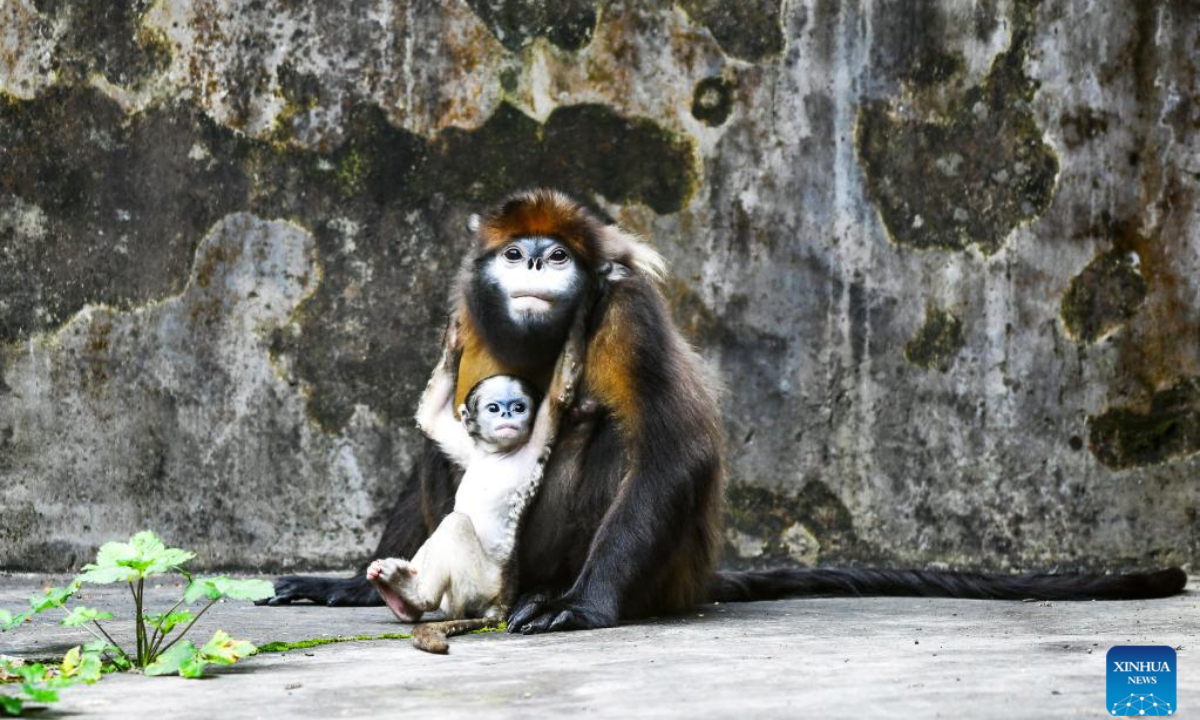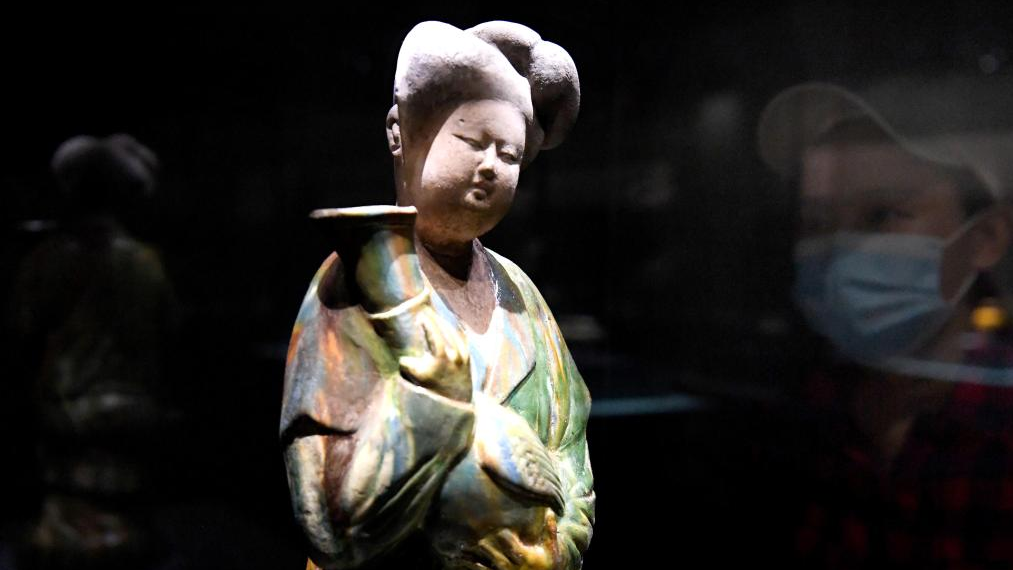China revises laws on wildlife protection, enhances regulations on artificial breeding, invasive species

A Guizhou snub-nosed monkey is seen with a cub in a wildlife rescue center of Fanjingshan National Nature Reserve in southwest China's Guizhou Province, June 16, 2022. Photo: Xinhua
A draft Chinese law revision has been submitted for review to enhance wildlife protection in various aspects, including artificial breeding, habitat protection and releasing wild animals optionally.
The draft revision to the Law on the Protection of Wildlife was submitted on Tuesday to the National People's Congress Standing Committee for a second reading, the Xinhua News Agency reported.
Under to the draft, a classification management system for artificial breeding should be established. The draft said that it requires official licenses to engage in the artificial breeding of wild animals under national priority protection, and the artificial breeding of animals identified by authorities as being of vital ecological, scientific and social importance should be recorded.
Artificial breeding is a preventive measure to save endangered wild animals. It aims to expand artificial populations and introduce them into the wild, Sun Quanhui, a scientist from the World Animal Protection organization, told the Global Times on Wednesday.
The offspring of some artificial breeding efforts, like monkeys, tigers and bears, are also used in medical experiments and as ingredients for traditional Chinese medicines in China, according to experts.
Zhang Wei, a professor at the College of Wildlife Resources at Northeast Forestry University in Harbin, Northeast China's Heilongjiang Province, said that the revisions are in line with the country's efforts to encourage artificial breeding of wild animals to protect them and to avoid the exploitation of those in the wild.
China has been establishing a level-to-level classification management system for the artificial breeding of wildlife years ago. But the latest draft clarified different management arrangements for the artificial breeding of wild animals under national priority protection and for animals of vital ecological, scientific and social importance.
The revision will help simplify procedures for artificial breeding of animals of vital ecological, scientific and social importance, Zhang said.
In the draft, Chinese legislators also proposed strengthening the protection of wildlife habitats and stipulating the responsibilities of governments at different levels in conservation work.
Governments at or above the provincial level shall designate important wildlife habitats as parts of national parks and other protected areas, to protect, restore and improve the living environment of wild animals.
Governments at or above the county level shall evaluate the impact on wildlife and wildlife habitats when making development plans, to prevent or reduce possible adverse consequences.
Experience around the world has proved that not all species can be artificially bred. So the most effective measure to protect and save endangered species is still to protect their habitats and eliminate threats to their life in the wild, Sun noted.
The draft stipulates that people will face legal liability if they release wild animals that injure other people, damage their property, or destroy the environment.
Any organization or individual that releases wild animals should choose species that are suited to live in the local wild environment. The animals' behavior should not disturb local residents' daily life and production, or destroy the local ecology, read the draft.
In recent days, several alligator fish, an imported species, have been found in many places in China, including the capital Beijing, Central China's Henan Province and East China's Jiangsu Province.
Being aggressive and having no natural enemies in China, the fish, having entered China's waters, will seriously threaten the survival of local fish, experts warned.
The issue caught public attention on the nagging question of illegally importing, setting loose or abandoning foreign species. Under Chinese law, those who commit such violations face up to three years in prison.
Zhu Haoning contributed to this story
Photos
Related Stories
Copyright © 2022 People's Daily Online. All Rights Reserved.









